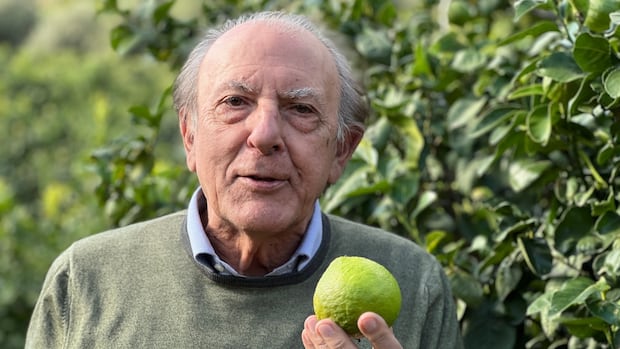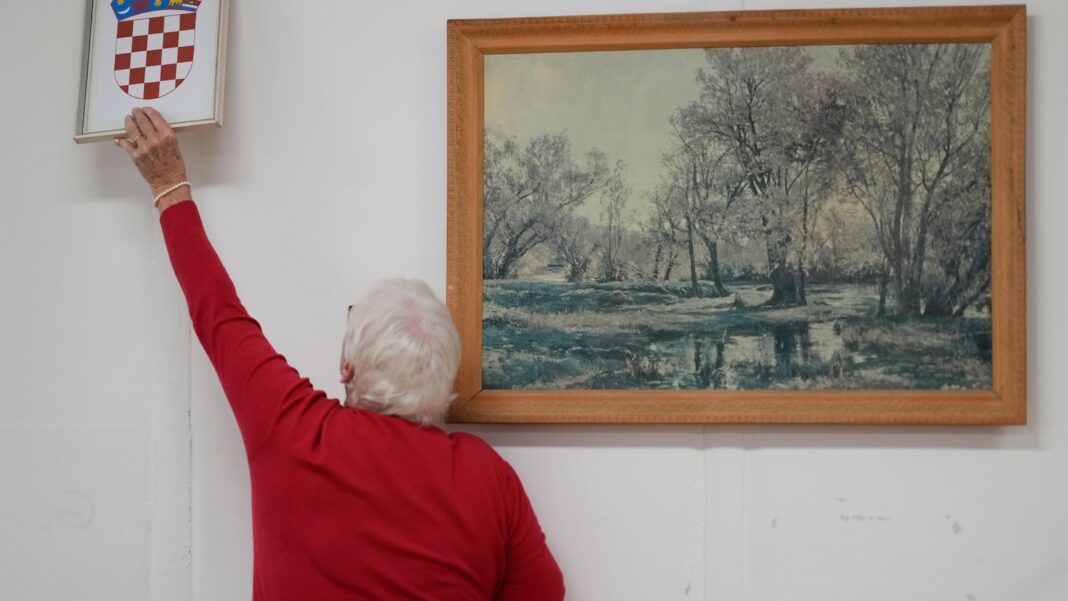The beloved Italian poet Gabriele D’Annunzio is famously credited with describing the view from the Reggio Calabria boardwalk, where the Mediterranean and Ionian seas meet, as “the most beautiful kilometre in Italy.”
But beyond its stunning vistas, the mingling of the seas and the unique microclimate created by the tapering Apennine mountain range offer idyllic conditions for the citrus fruit bergamot.
Grown almost exclusively for centuries along a 90-kilometre strip of the Ionian coast, the toe of Italy’s boot, the fruit’s essential oil has been a prized ingredient in perfumes, luxury cosmetics and even Earle Grey tea, sought after for its complex, citrusy top note in perfumes and ability to fix scents to the skin.
“It’s a miracle of nature,” said Ezio Pizzi, president of the Bergamot Consortium, which in 2001 obtained the coveted Protected Designation of Origin (DOP) status from the Europe Union for the essential oil.
“To think this plant was brought from Sicily and planted here, 15 kilometres away, in this incredible microclimate that has endowed it with incredible qualities.”
Over time, Calabrians discovered the many benefits of the oil extracted from its skin of the fruit picked while still green — from repelling mosquitoes and flies to acting as a powerful disinfectant and enhancing the longevity and diffusion of a fragrance.

In the late 1960s, though, the invention of synthetic oil caused the value of natural bergamot to plummet, leading landowners to cut down their trees. For nearly 25 years, bergamot cultivation in the region ceased.
Then, in the early-’90s, the rise of organic products sparked renewed interest, especially from French perfumeries. Pizzi, a member of one of the few land-owning families who hadn’t destroyed their orchards, pulled together a group of producers and relaunched the essential oil production, forming a consortium.
“We were able to double the price from 18 cents a litre to 36 the first year,” he said. “Now we fetch as much as a euro a litre.”
Today, says Pizzi, the DOP area in Calabria produces 80 per cent of the world’s bergamot.
Yet, until just over a decade ago, the flesh of the fruit was cast aside — mostly fed to animals.
Prized juice once demonized
“I grew up with my mother telling me that if I ate bergamot, my hands would fall off,” said Vittorio Caminiti, a local historian and founder of the small, homey National Bergamot Museum, located up a flight of stairs off a side street in Reggio Calabria.
Criminiti says wealthy landowners demonized the fruit’s juice, claiming it was toxic to prevent local peasants from consuming it and thereby ensuring that the harvesting of bergamot remained solely in their control for oil extraction. Before industrialization, he says it took 400 bergamots to make just one litre of oil.
“If someone died? They’d eaten a bergamot. If a woman miscarried? She’d eaten a bergamot. Any ailment was blamed on bergamot,” he said. “There were too many trees to patrol, so instead of arresting or beating people for eating them, they created a myth.”
In the mid-1990s, Caminiti began experimenting with the juice, eventually realizing he had to wait until the bergamot ripened until it was orange to eat or drink. He entered a cake he made with bergamot juice in a contest and took home top prize.
Culinary media in Italy picked up the story, expressing outrage or incredulity.
“I’d give them bergamot recipes, then they’d call the head of the bergamot consortium, who told them I was crazy,” he said.
Health benefits
Soon after, the first scientific studies were undertaken in Italy, showing that bergamot juice lowers blood pressure and cholesterol, and later ones demonstrating a potential for managing diabetes.
The discovery of the juice’s health benefits has drawn in new producers to the market, such as Fabio Trunfio, 50, who operates Patea Bergamot Agricultural Company — a 20-minute drive from Pizzi’s groves.
Trunfio entered the bergamot oil market in 2007, expanding production to include juice and the sale of fruit in 2010.
Frustrated by what he says is Pizzi’s Bergamot Consortium’s failure to energetically promote the juice, he and other producers have launched a bid to have their own separate EU appellation: Protected Geographical Indication (IGP).
Like DOP, IGP focuses on the product’s regional reputation, but offers more flexibility in ensuring authenticity.
Trunfio and his group are also petitioning for IGP certification.
“Once we get our IGP, we’ll be able to go all out publicizing the amazing qualities of the juice from Calabrian bergamot,” said Trunfio, “and finally get a government certificate attesting to bergamot juice’s cholesterol-lowering properties.”
DOP consortium head Ezio Pizzi, though, is contesting Trunfio and others’ plan for an IGP — striving to retain control of the product through the more exclusive DOP, which he says it merits. He complains the new growers in the area are flooding the market, driving prices — already hit when duty-free perfume sales stalled during the pandemic — even lower.
As Calabria’s bergamot producers jostle for control of their brand, the larger issue of climate change looms. In all of Italy, worries are mounting over the vulnerability of monoculture farming, evident in everything from vineyards to olive groves.
But extreme summer temperatures and changes in rainfall patterns have struck southern Italian citrus growers particularly hard. Last summer, intense heat and drought in Sicily transformed oranges and lemons into hard, shrivelled nuts, with yields dropping by as much as 40 per cent.
For now, Calabria’s aquifers have been sufficient to make up for the lack of rainfall, with only a tiny part of the fruit suffering from heat. But producers warn that could change.

“We usually stop irrigating in September,” said Pizzi. “This year, it’s hardly rained a drop and for the first time I can ever remember, we’re still watering in December.”
He says he’s now in talks with regional politicians about setting up desalination plants or using greywater from sinks, showers or washing machines to use for irrigation.
But unless action is taken soon, Calabria risks watching its hard-won bounty, once again, slip away.




